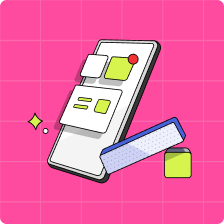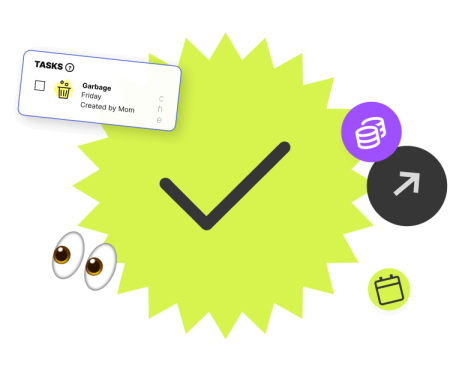You may think it’s too early to talk to your kids and teens about insurance, but it isn’t. Getting kids comfortable with insurance terms early means they’ll understand how it’s a part of lifelong financial stability. And, they won’t be so shocked later on, when it’s their turn to consider what type of insurance to purchase or how to work insurance premiums into their budget.
What are you really getting when you sign an insurance policy? As it turns out, quite a bit: protection for big investments, such as your home and car, plus the people and any items kept inside. Really, your premiums pay for peace of mind, and insurance can help you financially recover faster if the unexpected occurs such as a break-in, flood, or fire.
Keep it simple when you’re talking to your kids about insurance, so they don’t get overwhelmed. Below, we help by explaining why it’s important to get familiar with insurance, as well as the different kinds of insurance teens might need in their next phase of life.
Key messages
- Understanding key insurance terms and navigating insurance options are two of the basics of financial literacy.
- Insurance makes it possible for us to drive cars, rent or own homes, and look after health needs.
- Kids need to do the research when it’s time to get car insurance—don’t do this for them! By shopping around for options, they’ll learn how to save money on insurance premiums.
- When it’s time to move out for college or university, or for work, kids will need to look into home insurance, or business insurance for budding entrepreneurs.
Why is it important for kids to learn about insurance?
Learning about insurance is part of basic financial literacy for kids. While kids don’t have to think much about insurance when they’re young, it will become a big part of their lives down the road. Risk in life is inevitable, but insurance can help make it all financially manageable.
Perhaps the best place to start the conversation with tweens and teens is with a simple question: How do they protect the things that are valuable to them? They may have a rare collection or an expensive computer—what happens if these get damaged? They may want a pet, but what about vet costs? They may aspire to drive their own car, own a home, or even have a great idea for a future start-up business. How do they cushion themselves against a car accident, a flooded basement, or theft? The answer is, of course, insurance.
The sooner kids start to buy into the importance of getting insurance to protect themselves, the better. When it comes time to start shopping around for policies, your kids will be more in control, more confident, and feel good knowing that even if something goes wrong, they won’t lose everything.
Kids these days are savvy and see all kinds of things happening: in real life, on shows they’re streaming, and even in video games. These are excellent teaching moments (wait, how much must all those Mario Kart characters be paying in insurance premiums!?) All jokes aside, these situations give you a chance to explain how insurance works. For example, after a car accident, it can provide you with a car rental while the vehicle is being appraised for repair, pay for repairs and help with medical costs and even lost income, depending on the policy.

What do kids need to know about insurance?
While it runs rather quietly in the background as we go about our day, insurance touches just about every aspect of our lives, from driving a car to opening a bank account. Not only do kids need to learn to budget for and seek out this important financial tool, but they should also know how and where to get it.
1. Insurance rates vary, so shop around
Get a few insurance quotes before you sign, especially for car insurance and tenant or home insurance. If they don’t have access to a group rate, explain how licensed insurance brokers can help them find the best policy, and why it’s important to get different quotes for insurance to make sure they’re not overpaying. Teach your kids how to read a policy, and why the lowest premiums might not be the best option (in other words, is something missing?).
If their premiums are higher than they can afford, then talk to your kids about how to lower them. Maybe they can opt for a larger deductible in case of an accident for a better premium. For example, a car insurance policy with no deductible will be more expensive than one with a $1,000 deductible—they’ll just have to be prepared to pay out the $1,000 if they get into a crash.
2. Multiple factors go into car insurance
Insurance companies look at many things when they calculate insurance premiums: gender, age, the amount of coverage, personal information like driving history and credit score, where you live, etc. With their first car, your kid might say: “What? I pay more for car insurance because I’m a male? And I’m young? That’s not fair!” This is a perfect opportunity for you to talk to them about how insurance providers look at data and statistics, such as male drivers are twice as likely to be involved in car accidents than females. But this doesn’t give your daughters license to be reckless, either: too many speeding or parking tickets could make anyone a high-risk driver, regardless of gender, which means their access to inexpensive auto insurance becomes very limited.
3. Insurance extends to travel and caring for pets, too
If your older teen wants to go on a March Break trip with friends, then it’s a good idea to talk to them about travel insurance. No one can predict what can happen—a flight may be cancelled, baggage can get lost, or they could get sick while they’re away. Having travel insurance means they’re not paying out of pocket if the plane never takes off, or they’re stuck at the hotel for longer than expected. Check with travel or auto organizations, some credit card companies, or major banks that offer travel policies. Or, let’s say your child has their heart set on a puppy. Pet insurance can help with vet costs should something unexpected come up, like a costly operation because the puppy ate all the dental floss. This way, your kid won’t go into debt to save their furry friend.
4. Even investments have insurance
Let’s say your teen wants to open a kids savings account at a bank. Let them know their savings are insured! In Canada, the Canada Deposit Insurance Corporation (CDIC) protects deposits up to $100,000—it doesn’t matter who you are, or how you earned it. As long as the bank or institution is a CDIC member, coverage is automatic. The best part? There’s no charge. Money in savings and chequing accounts, GICs, and other term deposits are all protected. However, stocks, mutual funds, ETFs, and cryptocurrency may not be insured. Show your investment-savvy kids how to check the CDIC website to make sure their financial institution is a CDIC member.
5. Be wary of insurance fraud
Some people see insurance fraud, such as claiming more damage than was really done for a bigger payout, as a victimless crime. It isn’t. Actually, it costs Canadians well over a billion dollars annually in added insurance premiums, not to mention the strains on health-care networks, emergency services, and court systems. Talk to your kids about different kinds of insurance fraud, such as staged auto collisions, auto shops that exaggerate the cost of claims, and health-care clinics that charge for services not provided. Make kids aware of how they can protect themselves by being wary of salespeople pressuring them to switch insurance carriers, avoiding paying premiums to an email address, and to trust their instincts if something feels “off.”

Types of insurance that will be most relevant for teens
Here are three types of insurance your child may need sooner, rather than later:
1. Car insurance
Your teen might be itching for the car keys once they get their full driver’s permit. This is an excellent time to sit down and help them see the bigger picture of driving costs: adding a part-time driver to your auto insurance policy, how their driving record will affect their insurance rates, and what kind of comprehensive coverage and collision coverage they will need in the policy.
Learn more about buying a car for a teenager.
2. Tenant insurance or liability insurance
Getting their own place is an exciting time in any kid’s life. Being king or queen of the castle with no parental figure telling them what to do is pretty intoxicating. While they may not think they need insurance to rent an apartment, or even live in residence at college or university, things can happen. Let’s say they leave the water running in the tub and forget about it, which causes a leak into the apartment below. They could be liable for any structural or property damage that occurs—and come begging to Mom and Dad for help. Or, what if someone helps themselves to their expensive computer or bike right out of their dorm room? If they have tenant or liability insurance, they’ll have coverage for these things.
3. Health and dental insurance
In Canada, health-care coverage extends from doctor’s visits to regular medical tests to a hospital stay, but it doesn’t cover everything. Only relying on universal health care can make you put off the things that are paid out-of-pocket, such as dental checkups or new eye glasses. And with anything health-related, undetected situations can become a lot worse—and a lot more expensive—if they’re not caught and corrected early.
Sure, your teen may feel like the pinnacle of health and more or less invincible now, but talk to them about budgeting for health and dental insurance for when they move out. Some employers offer health insurance plans to help cover some of these expenses, but they’re not always accessible to part-time or contract workers. Plant the seed about health insurance early on, so they know to look into it themselves later on.
Why your kids should understand how insurance works
Accidents, pandemics, financial loss—things happen in life, and sometimes we have no control over them. Kids need to know that while unpredictable events are unavoidable, insurance is there to help protect them, their finances, and also lower their risk of liability to someone else.
As a parent, you want your kids to be well prepared for their adult years, and this is a good time to lay the groundwork. Keep it positive: After all, insurance is about helping them move forward in situations and ultimately getting what they want out of life, whether it’s their own place, a new car, or taking a vacation with friends. Start talking now, and they’ll begin to get it: Insurance can help them achieve—and keep—all their dreams for the future. Start building their foundation today by downloading the Mydoh app to help you teach financial literacy to your kids.
Download the Mydoh app and help build the foundation of financial literacy for your kids and teenagers.
This article offers general information only and is not intended as legal, financial or other professional advice. A professional advisor should be consulted regarding your specific situation. While the information presented is believed to be factual and current, its accuracy is not guaranteed and it should not be regarded as a complete analysis of the subjects discussed. All expressions of opinion reflect the judgment of the author(s) as of the date of publication and are subject to change. No endorsement of any third parties or their advice, opinions, information, products or services is expressly given or implied by Royal Bank of Canada or its affiliates.













